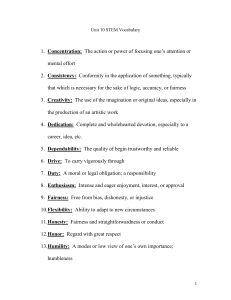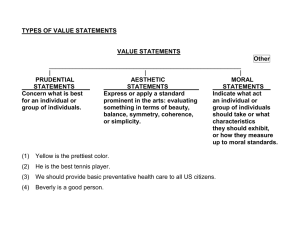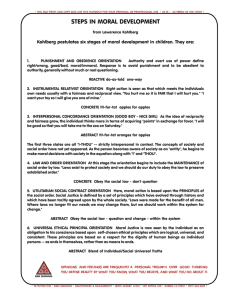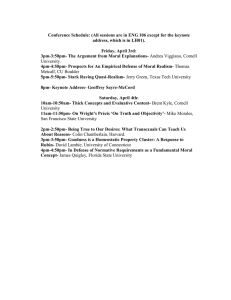HUMAN RIGHTS LANGUAGE, PRINCIPLES, & VALUES
advertisement
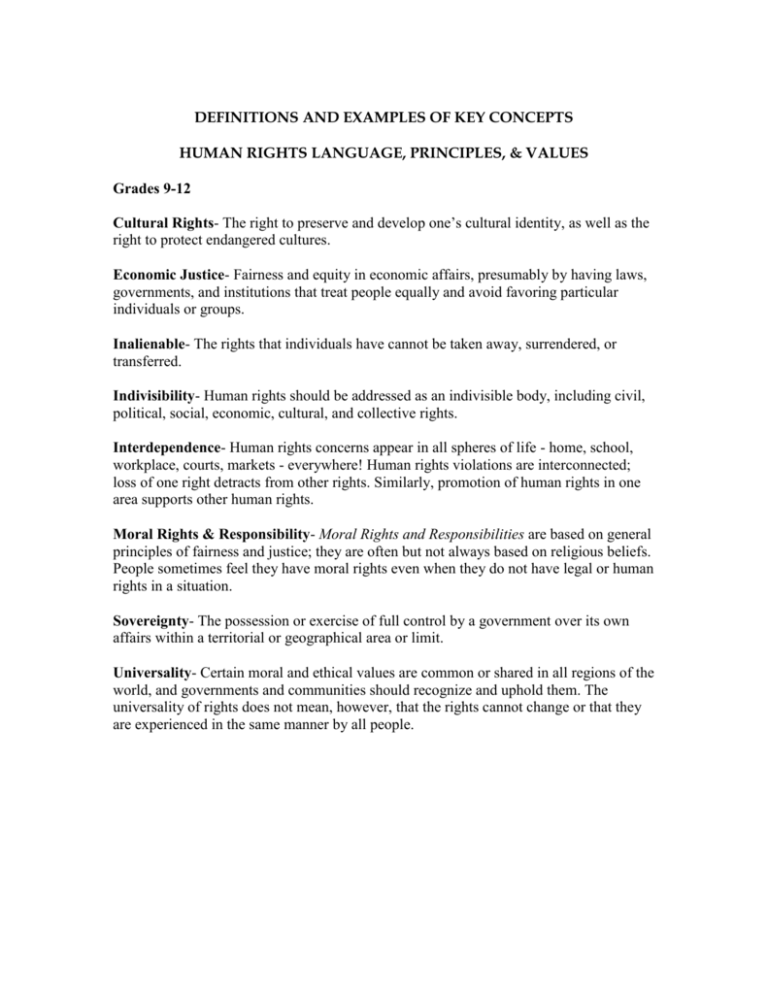
DEFINITIONS AND EXAMPLES OF KEY CONCEPTS HUMAN RIGHTS LANGUAGE, PRINCIPLES, & VALUES Grades 9-12 Cultural Rights- The right to preserve and develop one’s cultural identity, as well as the right to protect endangered cultures. Economic Justice- Fairness and equity in economic affairs, presumably by having laws, governments, and institutions that treat people equally and avoid favoring particular individuals or groups. Inalienable- The rights that individuals have cannot be taken away, surrendered, or transferred. Indivisibility- Human rights should be addressed as an indivisible body, including civil, political, social, economic, cultural, and collective rights. Interdependence- Human rights concerns appear in all spheres of life - home, school, workplace, courts, markets - everywhere! Human rights violations are interconnected; loss of one right detracts from other rights. Similarly, promotion of human rights in one area supports other human rights. Moral Rights & Responsibility- Moral Rights and Responsibilities are based on general principles of fairness and justice; they are often but not always based on religious beliefs. People sometimes feel they have moral rights even when they do not have legal or human rights in a situation. Sovereignty- The possession or exercise of full control by a government over its own affairs within a territorial or geographical area or limit. Universality- Certain moral and ethical values are common or shared in all regions of the world, and governments and communities should recognize and uphold them. The universality of rights does not mean, however, that the rights cannot change or that they are experienced in the same manner by all people.
